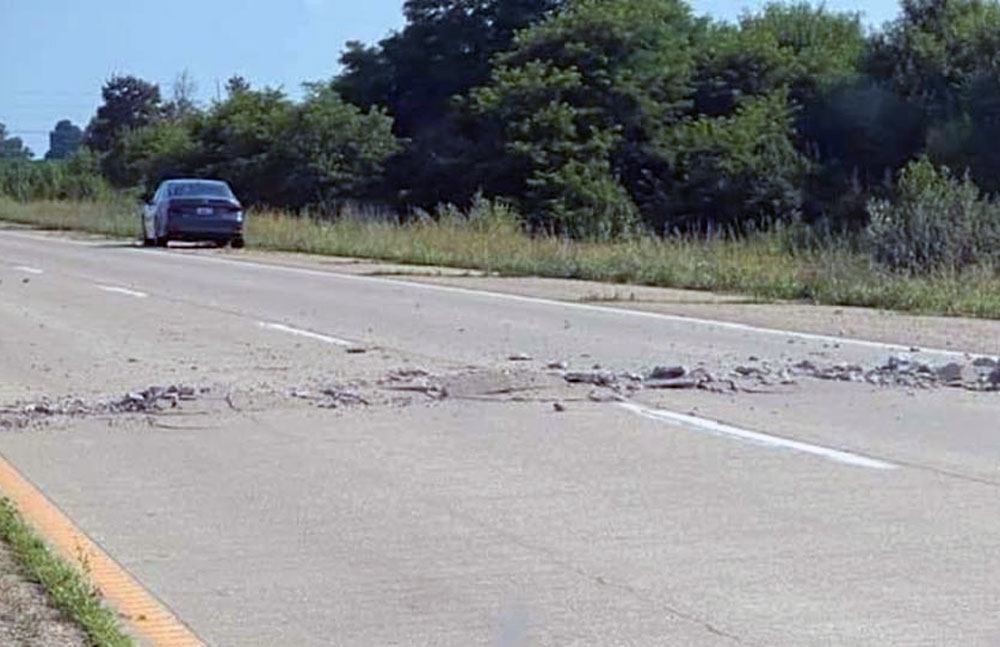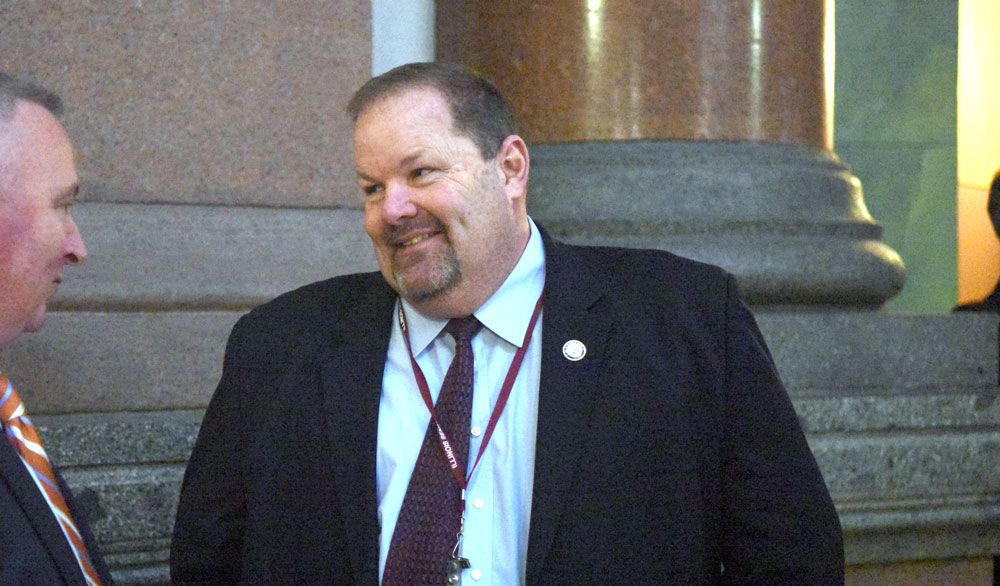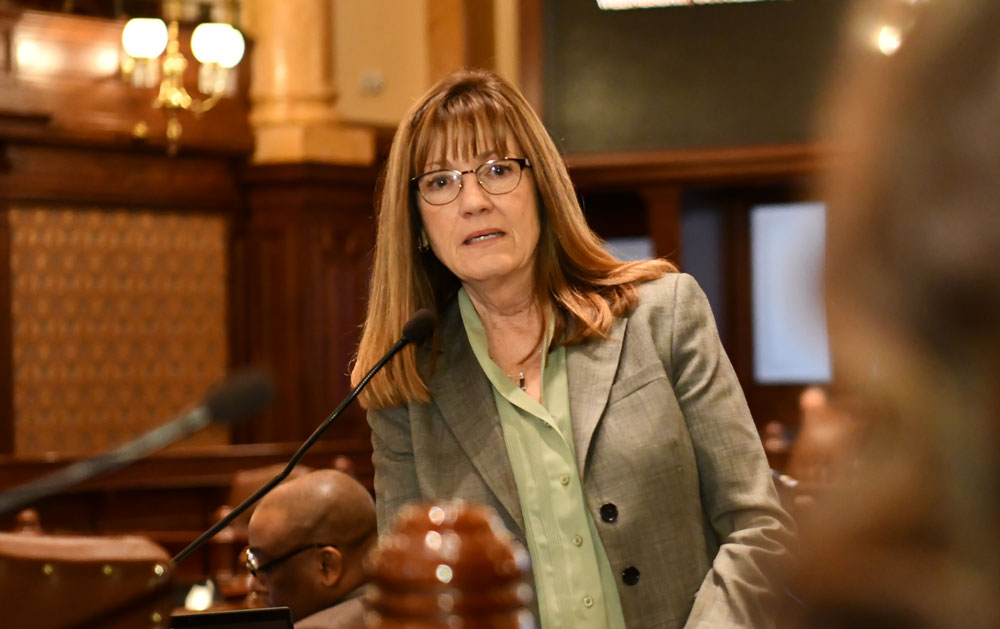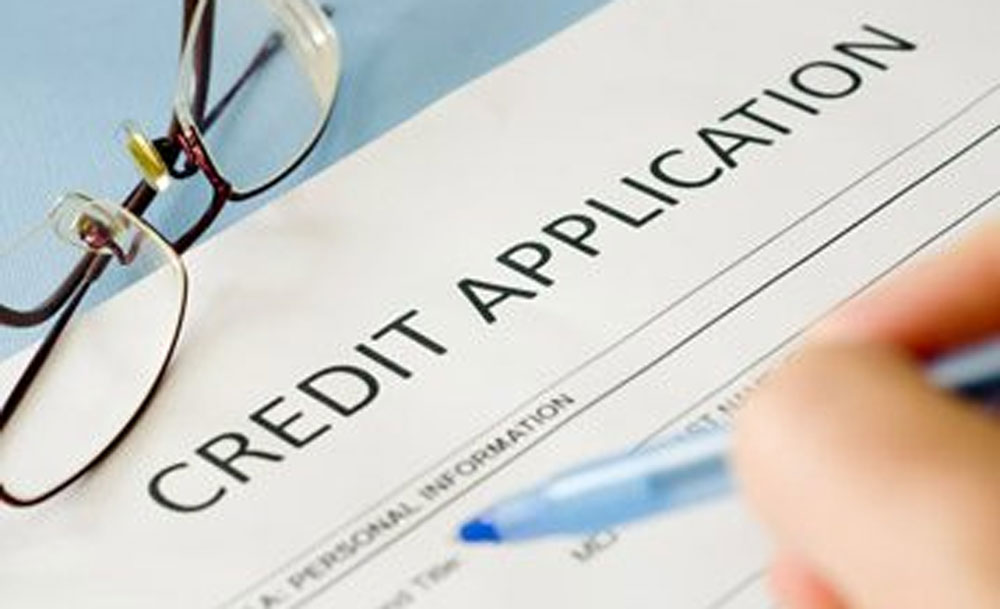- Details
- Category: Senator Ram Villivalam News
 CHICAGO – As temperatures continue to rise, Illinois State Senate Transportation Chair Ram Villivalam (D-Chicago) is urging drivers to be cautious of potential pavement buckling on roads due to the hot and humid weather.
CHICAGO – As temperatures continue to rise, Illinois State Senate Transportation Chair Ram Villivalam (D-Chicago) is urging drivers to be cautious of potential pavement buckling on roads due to the hot and humid weather.
“During the summer we often worry about staying hydrated and reapplying sunscreen,” Villivalam said. “Oftentimes we forget that extreme heat can also cause the road pavement to crack and break which can create dangerous driving conditions.”
According to the Illinois Department of Transportation, pavement failures or blowouts can occur when prolonged high temperatures cause roads to expand and buckle up or blow out, resulting in uneven driving surfaces. Precipitation and humidity can also increase the potential for buckling.
“To ensure road safety this summer, I urge everyone to be cognizant of road conditions and construction workers while traveling and to report any issues immediately,” Villivalam said.
Pavement failures should be reported to IDOT by calling 800-452-4368 or by calling 911.
- Details
- Category: Senator Patrick Joyce News
 PARK FOREST – To reduce heavy customer volume at driver services facilities and ensure current documents remain valid, State Senator Patrick Joyce (D-Park Forest) is drawing attention to the new renewal extension date for driver’s licenses, identification cards and license plate stickers.
PARK FOREST – To reduce heavy customer volume at driver services facilities and ensure current documents remain valid, State Senator Patrick Joyce (D-Park Forest) is drawing attention to the new renewal extension date for driver’s licenses, identification cards and license plate stickers.
“The Secretary of State has extended renewal expiration dates until Nov. 1,” Joyce said. “This decision will give motorists some peace of mind while also reducing the amount of in-person interaction necessary when renewing licenses and registrations.”
Many transactions, including renewing license plate stickers, can be done online, preventing people from waiting in line.
“During this current heat wave, I would suggest residents consider delaying their visit to a facility. But if you must visit a facility, please come prepared to wait outside due to social distancing, which limits the number of people inside a facility at one time,” Secretary of State Jesse White said.
Through July 31, driver services facilities are serving only new drivers, customers with expired driver’s licenses and ID cards, and vehicle transactions. Customers who must visit a facility to renew their driver’s license or ID card are encouraged to fill out the preregistration application here before their visit, which will speed up their transaction while at the facility.
- Details
- Category: Senator Melinda Bush News
 GRAYSLAKE –The country’s top court ruled Wednesday that employers can opt out of the Affordable Care Act’s birth control mandate over religious and moral objections. However, State Senator Melinda Bush (D-Grayslake) is reminding women it will not impact Illinoisans, thanks to last year’s passage of the Reproductive Health Act.
GRAYSLAKE –The country’s top court ruled Wednesday that employers can opt out of the Affordable Care Act’s birth control mandate over religious and moral objections. However, State Senator Melinda Bush (D-Grayslake) is reminding women it will not impact Illinoisans, thanks to last year’s passage of the Reproductive Health Act.
“I am disappointed with the Supreme Court’s decision to allow employers to dictate a woman’s access to contraception,” Bush said. “Employers can’t deny access to antibiotics for someone who has a sexually transmitted disease for moral reasons. How can they deny access to birth control?”
The Supreme Court made it more difficult for women to get access to birth control through their employer’s insurance, should their employer have a moral or religious objection to contraceptives.
The opinion upheld an administrative rule from President Donald Trump that significantly cut back on the Affordable Care Act’s requirement for insurers to provide coverage of preventative care and screenings without any cost sharing requirements as part of most health care plans.
However, thanks to the Reproductive Health Act, spearheaded by Bush, the court’s ruling does not supersede Illinois law. The Reproductive Health Act ensures reproductive health care is treated like all other health care in Illinois, guaranteeing women continued access to contraceptives.
“Today’s ruling further shows the importance of the Reproductive Health Act passed by the Illinois General Assembly last year,” Bush said. “The monumental measure affirms women, not politicians nor employers, can and should make their own decisions.”
- Details
- Category: Senator Tom Cullerton News
 VILLA PARK – To recognize older adults who have contributed to communities through service, education, the workforce or the arts, State Senator Tom Cullerton (D-VILLA PARK) urges residents to nominate a senior they know for the Senior Illinoisans Hall of Fame.
VILLA PARK – To recognize older adults who have contributed to communities through service, education, the workforce or the arts, State Senator Tom Cullerton (D-VILLA PARK) urges residents to nominate a senior they know for the Senior Illinoisans Hall of Fame.
“There are special individuals throughout our district who continue to serve our communities in different ways,” Cullerton said. “Take some time to nominate an older family member, friend or neighbor who goes out of their way to make our neighborhoods a better place.”
The Senior Illinoisans Hall of Fame celebrates outstanding accomplishments by seniors in community service, education, the labor force and the arts. Each year, four candidates—one from each category—are inducted.
Eligibility is based on an individual’s past and present accomplishments, and the candidate must be a current Illinois citizen or a former citizen for most of their life. Posthumous nominees are also considered.
Since its creation in 1994, 121 people have been inducted into the Senior Illinoisans Hall of Fame.
“We have heroes across DuPage County who continue to serve and help make our communities a better place. They deserve to be recognized for their selfless acts,” Cullerton said.
The Illinois Dept. on Aging has extended the submission deadline through Monday, Aug. 31. Nominations may be submitted online or by calling the Senior HelpLine at 1-800-252-8966.
- Details
- Category: Senator Scott Bennett News
 CHAMPAIGN – To help people stay informed about their finances amid the COVID-19 pandemic, State Senator Scott Bennett (D-Champaign) is highlighting free credit reporting websites.
CHAMPAIGN – To help people stay informed about their finances amid the COVID-19 pandemic, State Senator Scott Bennett (D-Champaign) is highlighting free credit reporting websites.
“Like physical health, financial health is key to leading a stable and secure financial future,” Bennett said. “A consistent focus on a person’s budget and other financial matters will allow them to tackle financial burdens stemming from the COVID-19 pandemic.”
Federal law requires each of the three nationwide consumer credit reporting companies—Equifax, Experian and TransUnion—to provide a free credit report every 12 months if requested. As a result of the COVID-19 pandemic, these companies are offering free online weekly credit reports through April 2021.
The information in these reports may affect mortgage rates, credit card approvals, apartment requests and job applications. Reviewing credit reports can also help catch signs of identity theft early.
“People can take steps to improve their financial wellbeing by regularly checking their credit report,” Bennett said. “As we continue to navigate this challenging time, I encourage residents to take advantage of free credit services available to review their credit history and manage their finances.”
To find out more about why credit is important or to request a credit report, visit www.AnnualCreditReport.com.
- Details
- Category: Senator Andy Manar News
 Manar urges skilled tutors to volunteer
Manar urges skilled tutors to volunteer
SPRINGFIELD – With $307,645 in grant funding from the Illinois Secretary of State headed to local organizations to promote adult literacy, State Senator Andy Manar (D-Bunker Hill) is urging skilled tutors to volunteer to work with students to develop reading, math, writing and English-language skills.
“The adult literacy grants will help put thousands of adult learners on a path toward building a brighter future for themselves and their families,” Manar said. “I encourage tutors in Decatur and Springfield to consider donating their time and abilities to help equip students with skills they will use for a lifetime.”
Statewide, more than 13,500 students will be served by adult literacy programs. Nearly 6,000 volunteer tutors provide skills training for students. Adult literacy projects help Illinois adults who read below the ninth-grade level or speak English at a beginning level to improve their reading, writing, math or English as a second language skills.
The following organizations in Manar’s district will receive grants:
|
Baby TALK |
Decatur |
$50,000.00 |
|
Richland Community College |
Decatur |
$100,000.00 |
|
Lincoln Land Community College |
Springfield |
$64,976.00 |
|
Fishes & Loaves Outreach |
Springfield |
$92,669.00 |
“Fishes & Loaves and Baby TALK uplift and empower young adults in a way that few other organizations can,” Manar said. “I was pleased to learn that the state will help advance their missions.”
The Adult Literacy Program is administered by the Secretary of State’s Illinois State Library Literacy Office and awards grants in three categories:
- Adult Volunteer Literacy Grants provide training for volunteers who tutor those ages 17 and older in basic reading, math, writing or language skills. Participating literacy providers include libraries, volunteer tutoring organizations, community-based organizations, community colleges, regional offices of education, schools (individual and public), preschool programs, school districts, domestic violence shelters and correctional facilities.
- Penny Severns Family Literacy Grants provide educational services to parents and children to enhance basic reading, math, writing or language skills. Programs must partner with an adult literacy provider, a child-at-risk agency and a public library.
- The Workplace Skills Enhancement Project Grants provide onsite instructional services to employees of participating Illinois businesses, enabling them to enhance their basic reading, writing or language skills and to improve their chances for promotion. Eligible employees must read at or below the ninth-grade level. Grantees must match the grant award and provide instructional services to prospective employees. The fiscal agent and submitting agency may be either the educational partner or the business partner.
People interested in becoming volunteer tutors are encouraged to contact the Illinois Adult Learning Hotline at 800-321-9511.
- Details
- Category: Senator Napoleon Harris III News
 DOLTON – With South Suburban College set to receive over $98,000 from the Illinois Secretary of State to develop their adult literacy program, State Senator Napoleon Harris (D-Harvey) urges residents to volunteer as tutors for the program to help adult learners hone their reading, math, writing and English-language skills.
DOLTON – With South Suburban College set to receive over $98,000 from the Illinois Secretary of State to develop their adult literacy program, State Senator Napoleon Harris (D-Harvey) urges residents to volunteer as tutors for the program to help adult learners hone their reading, math, writing and English-language skills.
“Literacy is one tool to help people move out of poverty and get better paying jobs to support their families,” Harris said. “This funding is essential, but it’s also imperative that people contribute their time to help their neighbors learn—literacy skills benefit not only the struggling reader, but the entire community.”
Adult literacy programs throughout Illinois will serve more than 13,500 students. Supported by $5.6 million in state funds, the programs will depend on nearly 6,000 volunteer tutors to provide skills training for students, according to the Secretary of State’s Office. Adult literacy projects are focused on improving reading, writing and math skills for Illinois adults who read below the 9th-grade level or speak English at a beginning level.
The Secretary of State awards grants in these categories:
- Adult Volunteer Literacy Grants provide training for volunteers who tutor people ages 17 and older in basic reading, math, writing or language skills. Participating literacy providers include libraries, volunteer tutoring organizations, community-based organizations, community colleges, regional offices of education, schools (individual and public), preschool programs, school districts, domestic violence shelters and correctional facilities.
- Penny Severns Family Literacy Grants provide educational services to parents and children to enhance basic reading, math, writing or language skills. Programs must partner with an adult literacy provider, a child-at-risk agency and a public library.
- The Workplace Skills Enhancement Project Grants provide onsite instructional services to employees of participating Illinois businesses, enabling them to enhance their basic reading, writing or language skills and improve their chances of promotion. Eligible employees must read at or below the 9th-grade level. Grantees must match the grant award and provide instructional services to prospective employees. The fiscal agent and submitting agency may be either the educational partner or the business partner.
If you are interested in becoming a volunteer tutor, contact the Illinois Adult Learning Hotline at 800-321-9511.
- Details
- Category: Senator Christopher Belt News
 CENTREVILLE - In an effort to ensure disadvantaged families receive meal assistance, State Senator Christopher Belt (D-Centreville) announced Wednesday that funding is available for organization that support children who are in need from the Child and Adult Care Program.
CENTREVILLE - In an effort to ensure disadvantaged families receive meal assistance, State Senator Christopher Belt (D-Centreville) announced Wednesday that funding is available for organization that support children who are in need from the Child and Adult Care Program.
“Reducing food insecurity among low-income children is a priority and core mission of our state,” Belt said. “We want to continue to ensure our current reality does not hinder the meal assistance that many families rely on.”
The program assists child care centers, Head Start programs, before and after school programs, emergency shelters, and daycare home providers with funding to serve meals to children. All participating child care centers must provide meals to enrolled children at no additional cost.
The continuing COVID-19 pandemic has caused even more families to depend on federally funded nutrition programs. More than 1,000 child care centers across Illinois will be able to provide children with healthy meals.
Individuals in households who participate in Temporary Assistance for Needy Families or the Supplemental Nutrition Assistance Program are automatically eligible to receive free meal benefits. The USDA Household Income Eligibility Guidelines determine eligibility to receive free meal benefits for families that do not receive TANF or SNAP benefits.
If a household’s income falls within or below the listed guidelines, a member of the household should contact their child care center or day care home provider to learn about benefits of the CACFP. They may be required to complete an application and provide income, TANF or SNAP information.
Children enrolled in Head Start programs at approved facilities and foster care children who are legal responsibilities of the state or court will also receive free meal benefits. Parents or guardians should contact their child care center or day care home provider to find out if they can participate in CACFP.
Income Eligibility Guidelines Effective from July 1, 2020, to June 30, 2021
|
Income Eligibility Guidelines |
|||||||||||
|
Effective from July 1, 2020, to June 30, 2021 |
|||||||||||
|
|
Free Meals |
|
Reduced-Price Meals |
||||||||
|
130% Federal Poverty Guideline |
185% Federal Poverty Guideline |
||||||||||
|
Household Size |
Annual |
Monthly |
Twice Per Month |
Every Two Weeks |
Weekly |
Household Size |
Annual |
Monthly |
Twice Per Month |
Every Two Weeks |
Weekly |
|
1 |
16,588 |
1,383 |
692 |
638 |
319 |
1 |
23,606 |
1,968 |
984 |
908 |
454 |
|
2 |
22,412 |
1,868 |
934 |
862 |
431 |
2 |
31,894 |
2,658 |
1,329 |
1,227 |
614 |
|
3 |
28,236 |
2,353 |
1,177 |
1,086 |
543 |
3 |
40,182 |
3,349 |
1,675 |
1,546 |
773 |
|
4 |
34,060 |
2,839 |
1,420 |
1,310 |
655 |
4 |
48,470 |
4,040 |
2,020 |
1,865 |
933 |
|
5 |
39,884 |
3,324 |
1,662 |
1,534 |
767 |
5 |
56,758 |
4,730 |
2,365 |
2,183 |
1,092 |
|
6 |
45,708 |
3,809 |
1,905 |
1,758 |
879 |
6 |
65,046 |
5,421 |
2,711 |
2,502 |
1,251 |
|
7 |
51,532 |
4,295 |
2,148 |
1,982 |
991 |
7 |
73,334 |
6,112 |
3,056 |
2,821 |
1,411 |
|
8 |
57,356 |
4,780 |
2,390 |
2,206 |
1,103 |
8 |
81,622 |
6,802 |
3,401 |
3,140 |
1,570 |
|
For each additional family member, add |
5,824 |
486 |
243 |
224 |
112 |
For each additional family member, add |
8,288 |
691 |
346 |
319 |
160 |
Child care institutions can learn more and apply for the program here: https://www.isbe.net/Pages/Nutrition-and-Wellness-Child-Care-Institutions.aspx
Family day care homes can learn more here: https://www.isbe.net/Pages/Family-Day-Care-Homes.aspx
Those interested in the adult care portion of the program can visit: https://www2.illinois.gov/aging/programs/Pages/Child-and-Adult-Care-Food-Program-(CACFP).aspx
More Articles …
- Lightford criticizes U.S. Supreme Court ruling limiting access to birth control
- Villivalam urges residents to take advantage of new tollway initiative
- Crowe announces local grant recipients for adult literacy programs
- Cullerton urges residents to nominate DuPage residents to Senior Illinoisans Hall of Fame
Page 658 of 763